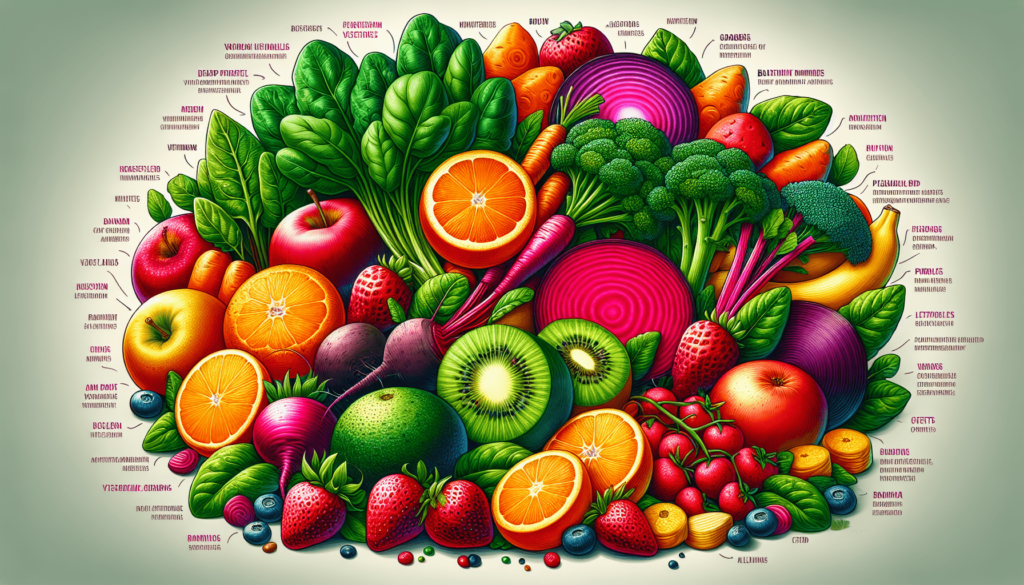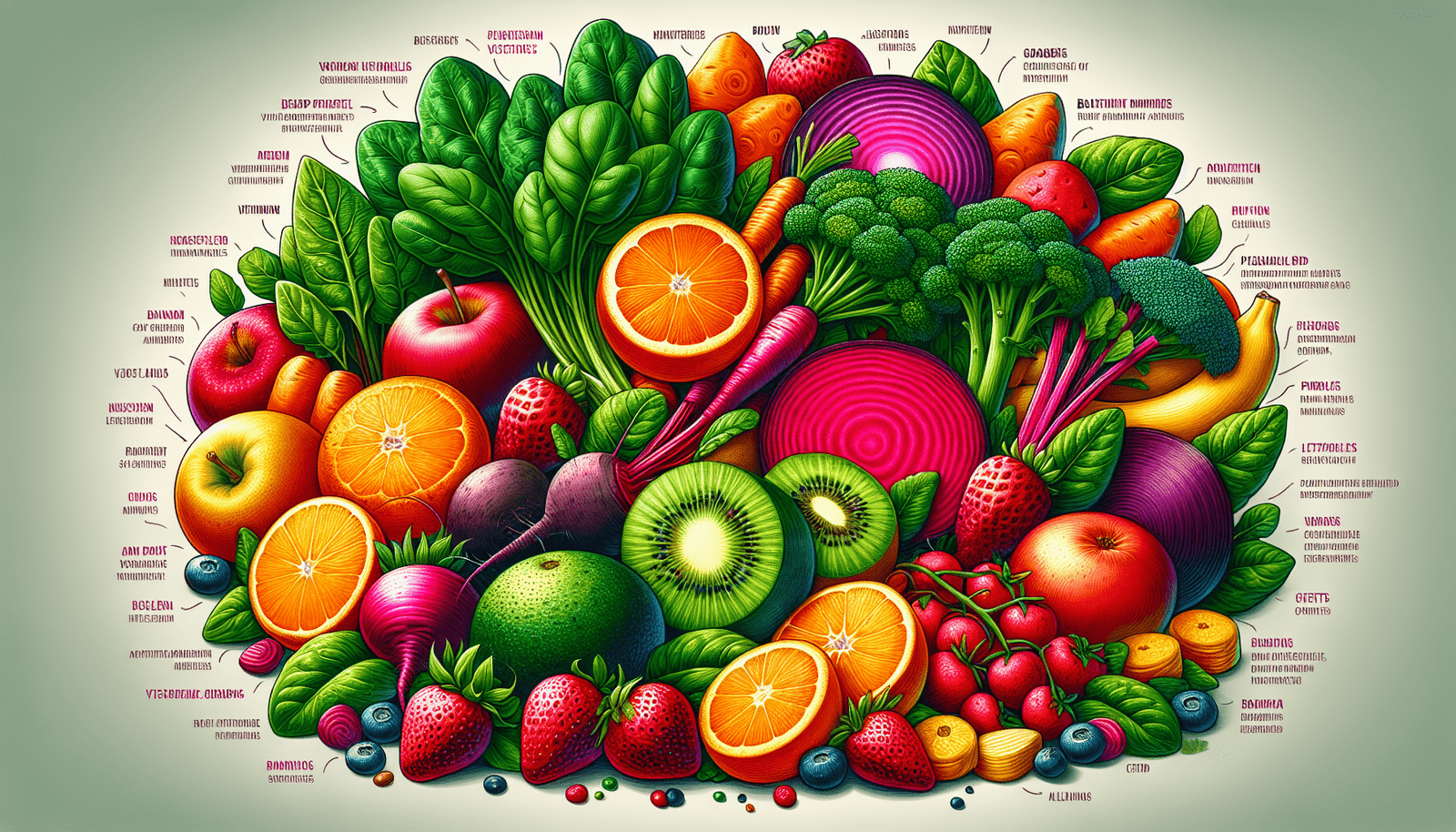Welcome to “Know Your Nutrients: A Deep Dive Into Vitamins And Minerals”! In this article, you will embark on a journey to discover the fascinating world of essential vitamins and minerals that are crucial for your overall well-being. From vitamin C to magnesium, we will explore the benefits of each nutrient and how they play a vital role in keeping your body healthy and functioning at its best. So sit back, relax, and get ready to learn more about the nutrients that are essential for a happy and healthy life.
Know Your Nutrients: A Deep Dive Into Vitamins And Minerals
Have you ever wondered about the role that vitamins and minerals play in supporting your overall health and well-being? In this article, we’ll explore the essential nutrients your body needs to function optimally, how to incorporate them into your diet, and the potential risks of deficiency. Let’s take a deep dive into the world of vitamins and minerals together!
The Importance of Vitamins and Minerals
Hey there! Did you know that vitamins and minerals are essential micronutrients that your body needs in small amounts to perform various functions? These nutrients play crucial roles in maintaining overall health, supporting immune function, promoting growth and development, and aiding in energy production. Without an adequate intake of vitamins and minerals, you may be at risk of developing deficiencies that can lead to a variety of health issues.
Vitamins
Vitamins are organic compounds that are necessary for various physiological functions in the body, such as metabolism, energy production, and immune function. There are 13 essential vitamins, classified into two categories:
-
Water-Soluble Vitamins: These vitamins dissolve in water and are not stored in the body, meaning they need to be consumed regularly through your diet. Examples include vitamin C and the B-complex vitamins.
-
Fat-Soluble Vitamins: These vitamins are stored in the body’s fat tissues and liver, and include vitamins A, D, E, and K. Consuming these vitamins with a source of fat can enhance their absorption.
Minerals
Minerals are inorganic elements that are crucial for various bodily functions, such as bone health, nerve function, and muscle contractions. There are two categories of minerals:
-
Macrominerals: These minerals are needed in larger amounts by the body and include calcium, magnesium, potassium, and sodium.
-
Microminerals (Trace Minerals): These minerals are needed in smaller amounts but are equally important, such as iron, zinc, copper, and selenium.
Understanding Vitamin Deficiencies
Hey, did you know that not getting enough vitamins and minerals in your diet can result in deficiencies that may lead to various health problems? Let’s take a closer look at some common vitamin deficiencies and their potential effects on your health:
Vitamin D Deficiency
Vitamin D is essential for bone health, immune function, and mood regulation. A deficiency in vitamin D can lead to weakened bones (osteoporosis), increased susceptibility to infections, and a higher risk of depression. The primary source of vitamin D is sunlight, but it can also be obtained from foods like fatty fish, eggs, and fortified dairy products.
Iron Deficiency
Iron is crucial for the production of red blood cells and transporting oxygen throughout the body. A deficiency in iron can result in fatigue, weakness, pale skin, and impaired cognitive function. Good dietary sources of iron include red meat, poultry, beans, and leafy green vegetables.
Vitamin B12 Deficiency
Vitamin B12 is essential for nerve function, red blood cell production, and DNA synthesis. A deficiency in vitamin B12 can cause fatigue, weakness, numbness or tingling in the hands and feet, and cognitive issues. Food sources of vitamin B12 include animal products like meat, fish, eggs, and dairy.

Meeting Your Nutrient Needs Through Diet
Thinking about making sure you’re getting all the vitamins and minerals you need through your diet? Let’s explore some tips on how to incorporate a variety of nutrient-rich foods into your meals to meet your nutritional needs:
Fruits and Vegetables
Fruits and vegetables are excellent sources of essential vitamins, minerals, and antioxidants that support overall health and well-being. Aim to include a variety of colorful fruits and vegetables in your diet to ensure you’re getting a wide range of nutrients. Some examples include:
- Vitamin C: Found in citrus fruits, bell peppers, strawberries, and broccoli.
- Vitamin A: Found in carrots, sweet potatoes, spinach, and kale.
- Potassium: Found in bananas, potatoes, avocados, and leafy greens.
Protein-Rich Foods
Protein is essential for muscle repair, immune function, and hormone production. Include sources of lean protein in your diet, such as poultry, fish, tofu, beans, and nuts. These foods also provide essential minerals like iron and zinc that are important for overall health.
Whole Grains
Whole grains are rich in B-vitamins, fiber, and minerals like magnesium and selenium. Incorporate whole grains such as quinoa, brown rice, oats, and whole wheat bread into your meals for sustained energy levels and improved digestive health.
Potential Risks of Overconsumption
Hey, did you know that consuming excessive amounts of certain vitamins and minerals can be harmful to your health? Let’s discuss the potential risks of overconsumption of these essential nutrients:
Vitamin Overload
Taking high doses of certain vitamins, such as vitamin A, D, E, and K, can lead to toxicity and adverse health effects. Symptoms of vitamin overdose may include nausea, vomiting, dizziness, and organ damage. Always consult with a healthcare professional before taking any vitamin supplements.
Mineral Imbalance
Consuming excessive amounts of certain minerals, like iron or calcium, can disrupt nutrient absorption and lead to mineral imbalances in the body. This can result in gastrointestinal issues, kidney stones, and other health complications. It’s crucial to maintain a balanced diet and avoid excessive supplementation.
Nutrient Interactions
Some vitamins and minerals can interact with each other, affecting their absorption and bioavailability in the body. For example, high calcium intake can interfere with the absorption of iron and zinc, leading to potential deficiencies. Be mindful of nutrient interactions and consult with a healthcare provider if you have concerns.

Conclusion
By now, you’ve gained a deeper understanding of the role that vitamins and minerals play in supporting your overall health and well-being. Remember to prioritize a balanced diet rich in nutrient-dense foods to meet your body’s daily requirements for essential nutrients. If you have specific health concerns or dietary restrictions, consider consulting a healthcare professional or registered dietitian for personalized guidance. Your health is important, so take care of yourself by nourishing your body with the right nutrients it needs to thrive!

